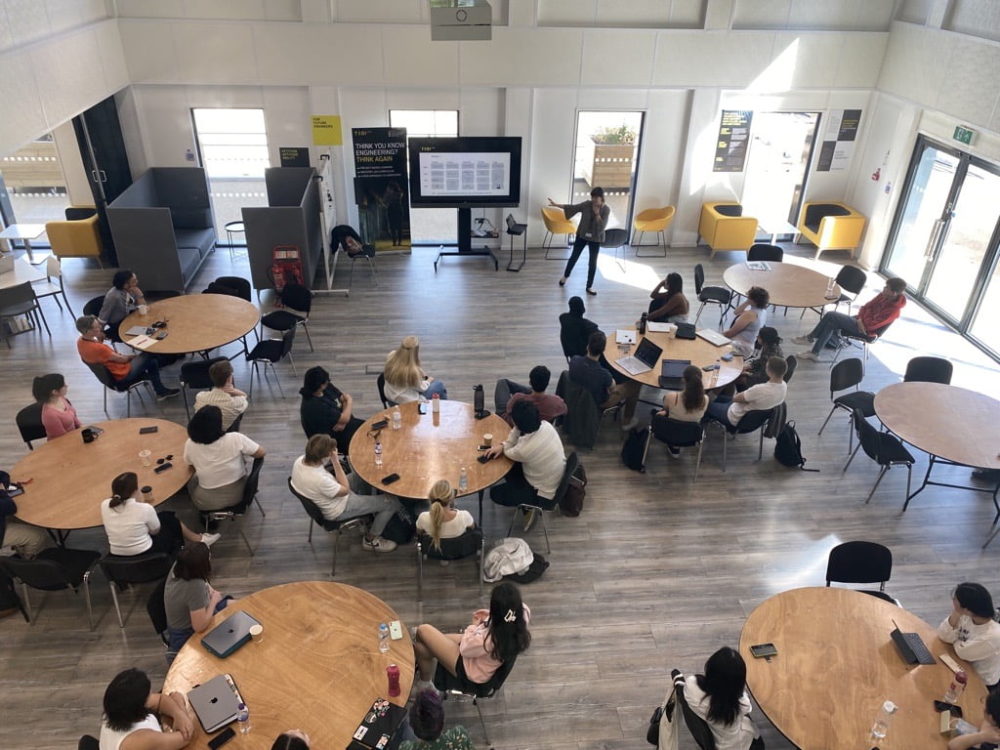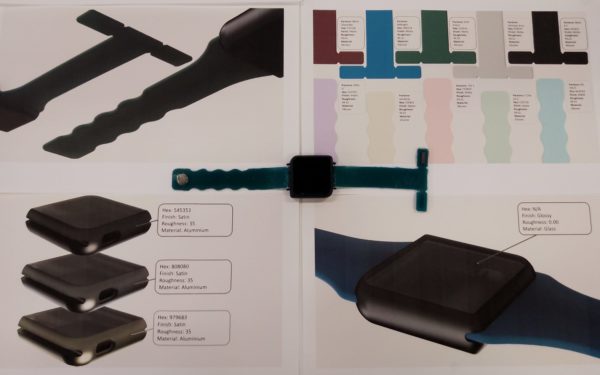TEDI-London hosts first in-person summer school in three years

We are delighted to have welcomed our summer school students this week! Our 2022 programme is the second in-person summer school since 2019. Over the coming three weeks, more than 30 students from across three countries will work in teams to explore urban farming technologies, business concepts and approaches.
Students have been tasked with assisting our industry partners Global Generation and British Land, as well as knowledge partners JLL and LondonGrow, with assessing the options to enable increased participation in urban environments, whilst taking into account the role of smart technologies. As part of this challenge, each team will have to develop a prototype and explain how it would make a positive impact within our local Canada Water community.
Urban farming to foster resilient cities
It is estimated more than 4 billion people live in urban areas globally. This is expected to increase to almost 7 billion by 2050. During this time, the world’s population of people aged 60 years and over will double, whilst the number of people aged 80 years and older will triple (World Health Organisation).
Engineers have a big part to play when it comes to accommodating our growing population, which comes with its own set of challenges:
- Ensuring that housing markets are balanced and that urban residents have access to affordable, good quality housing
- Keeping up with changing trends in mobility and transport
- Making sure that urban infrastructure is suitable for an ageing population with accessibility and healthcare needs
- Future-proofing systems and infrastructure to cope with increased usage and demands
On top of this, cities are already major contributors to climate change. Cities are estimated to consume 78% of the world’s energy and produce more than 60% of greenhouse gas emissions, accounting for less than 2% of the Earth’s surface (Cities and Pollutions, United Nations). As such, engineers are faced not only with the task of ensuring that new developments and solutions are sustainable, but also with reducing the carbon footprint of existing infrastructure. Urban resilience and climate adaption will be key to achieving the UN sustainable development goals and enabling ‘inclusive, safe, resilient and sustainable cities’.
A multidisciplinary summer school
Throughout their time at summer school, the students will be supported by a range of academics, technicians and industry partners as they develop their design ideas and prototypes. They will explore numerous relevant topics, including the Canada Water masterplan, vertical farming, the prototyping process and how to pitch ideas to clients. They will also learn about key themes in design, engineering, teamworking and applying complex theory to real-world challenges.
With a blend of virtual and in-person learning, the teams will attend masterclasses, mentoring sessions and workshops. Additionally, they will be trained on how to use the tools and machinery in our Makerspaces safely, allowing them to take full advantage of our purpose-built campus facilities during their time at TEDI-London.
The teams are comprised of students already in Higher Education; most of whom are studying at TEDI-London or one of our Founding Partner universities – Arizona State University, King’s College London and UNSW Sydney. Two thirds of these are engineering students whilst the remainder are from a wide range of non-engineering backgrounds, including Law, Business Studies and PPE (Politics, Philosophy & Economics). This breadth in interests reflects TEDI-London’s mission to bridge the skills gap within the engineering industry, by attracting and training a different type of engineer. It also reflects a core belief that more people are capable – and should consider – a career in engineering.
It is a real privilege to have our summer school participants with us on campus this year. At TEDI-London, we pride ourselves on teaching students through projects so they can apply their knowledge in a hands-on, practical way and as part of a team. Being able to extend this opportunity to a global cohort is vital to our global ambitions, and I am looking forward to seeing how they respond to the design challenge over the coming weeks.”
-Professor Judy Raper, Dean & CEO at TEDI-London.
More Events articles

From classroom to catwalk: how can we engineer the next generation of wearable technology?
